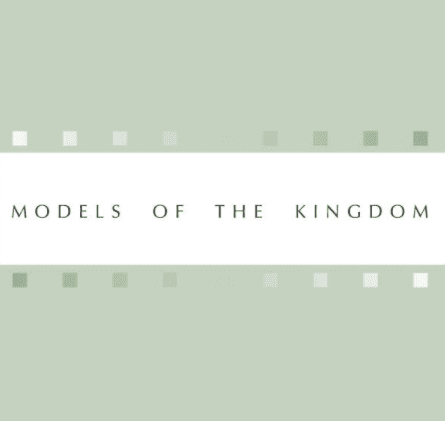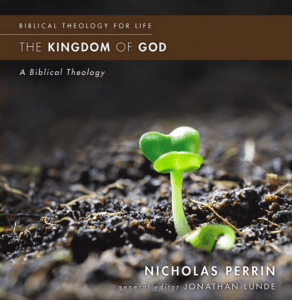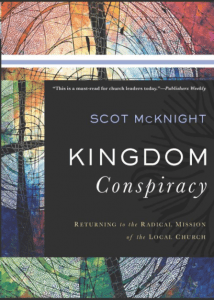 When I wrote Kingdom Conspiracy, which I’m glad Baker turned into paperback, I found a couple academic books that sketched theories of the kingdom but I was totally unaware of a wonderful book by Howard Snyder called Models of the Kingdom.
When I wrote Kingdom Conspiracy, which I’m glad Baker turned into paperback, I found a couple academic books that sketched theories of the kingdom but I was totally unaware of a wonderful book by Howard Snyder called Models of the Kingdom.
I wish I had; he would have made my work easier though I am convinced we need to exploit the Constantinian temptation more and the Kuyperian-Niebuhrian approaches as well.
What irritated me most when a friend pointed me to this book was that I have always enjoyed Snyder’s books and knew that he would be as concerned as I am with kingdom-church relations.
Here are the eight models of Snyder:
1. The kingdom as future hope: the future kingdom.
2. The kingdom as inner spiritual experience: the interior kingdom.
3. The kingdom as mystical communion: the heavenly kingdom.
4. The kingdom as institutional church: the ecclesiastical kingdom.
5. The kingdom as countersystem: the subversive kingdom.
6. The kingdom as political state: the theocratic kingdom.
7. The kingdom as Christianized culture: the transforming kingdom.
8. The kingdom as earthly utopia: the utopian kingdom.
Snyder argues there are six tension points that need attention in any biblically-shaped kingdom theory:
1. Present versus future. Jesus said “The kingdom of God is near” (Mark 1:15), but also that we should pray for God’s kingdom to come (Matt. 6:10).
2. Individual versus social. Jesus said the kingdom is like hidden treasure an individual person might find (Matt. 13:44), but he also said, “Do not be F 6 afraid, little flock, for your Father has been pleased to give you the kingdom” (Luke 12:32). He talked about being born again in order to see the kingdom (John 3:3) but also described it as a feast to be shared (Luke 13:29).
3. Spirit versus matter. Paul said, “Flesh and blood cannot inherit the kingdom of God” (I Cor. 15:50), and Jesus said, “My kingdom is not of this world” (John 18:36). But Jesus associated himself with the healing and hberation of the Jubilee (Luke 4:18-21) and Revelation speaks of a kingdom in which God’s people “will reign on the earth” (Rev. 5:10).
4. Gradual versus climactic. Jesus said the kingdom is like grain that grows gradually in a field (Mark 4:26-28). But he also said its coming would be like the midnight cry of the arriving bridegroom (Matt. 25:1-6).
5. Divine action versus human action. The kingdom of God is like a returning king who settles accounts (Luke 19:11-27). It is God who rules and reigns (Ps. 99:1-2). Yet, the kingdom is also something we must seek (Matt. 6:33), and Christians can be “fellow workers for the kingdom of God” (Col. 4:11).
6. The Church’s relation to the kingdom; the tension between seeing the church and the kingdom as essentially the same or as clearly different. Jesus said to the Apostle Peter, “I will give you the keys of the kingdom of heaven” (Matt. 16:19). But he also spoke of the kingdom as future and said that not all those who worshiped him, but only those who did God’s will, would enter the kingdom (Matt. 7:21).
One of the conclusions I have come to is that with Gustav Dalman, in Germany in the 19th Century, a major shift occurred in kingdom theology. Kingdom moved away from socio-political realities toward a more inward, immanent theory of kingdom. In addition, a serious study of kingdom in the Old Testament and Josephus and the Dead Sea Scrolls leads to a commonsensical but too often ignored undeniable dimension of the term kingdom: a kingdom is a people governed by a king. Namely, kingdom referred to a socio-political reality and had territory inherent to it.











